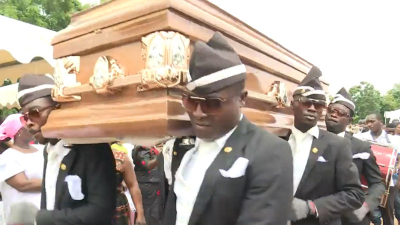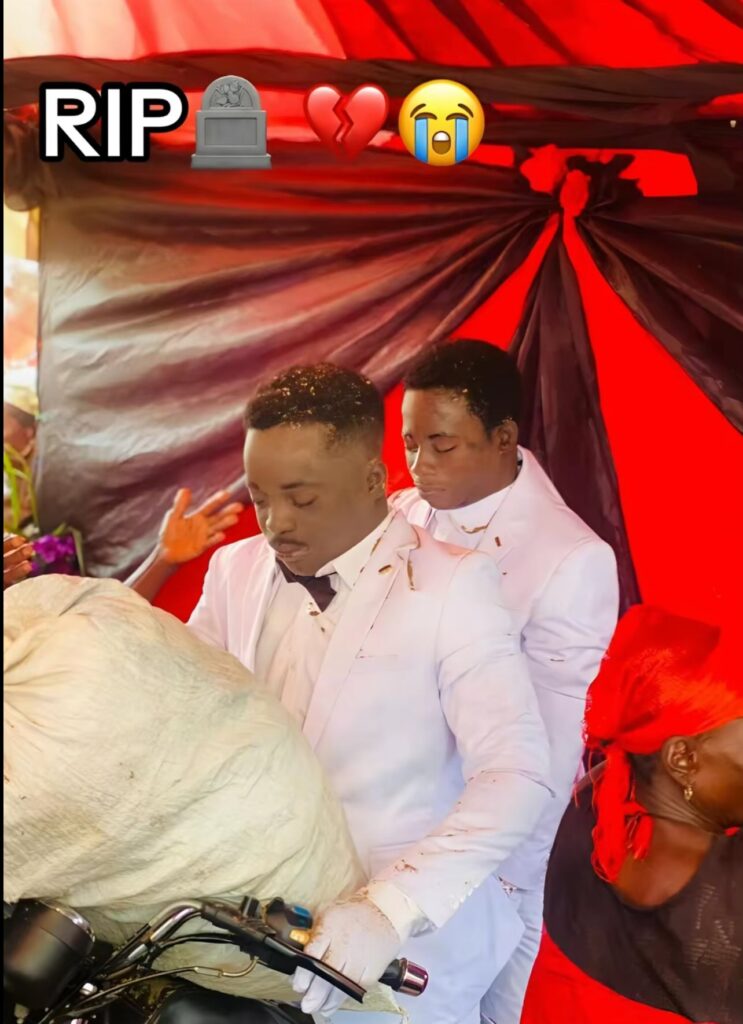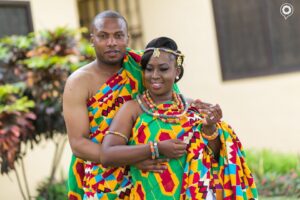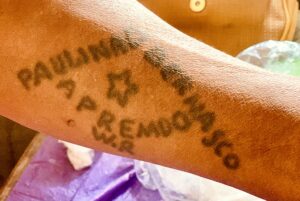
Photo Credit: @EkowBarnes on Twitter: Exploring Ghana’s Funeral Culture Series with @NumeroMagazine as produced by @EkowBarnes and @WBGroupReps. Shot by Kenny Germé. Assisted by @as0mani @bryan_benjamin_
In the Ghanaian culture, funerals are not merely farewells but intimate celebrations of life and identity amongst the Akan community. One of the unique phase of these ceremonies is the practice of “occupational lying in state.” Unlike the conventional method of displaying the deceased, this tradition involves presenting the departed in a manner that reflects their profession or life’s work.
Imagine a teacher seated at a desk with a book and pen, a fisherman surrounded by nets and fishing gear. This practice does not only honor the individual’s contributions to their community but also provides a profound and sometimes visual narrative of their life. This cultural phenomenon has gained attention whilst its actual history is yet to be revealed, although it gives a reflection of a person’s identity, even in death.
In terms of funerals and the associated preparations, the Akan people are renowned as the kingpins in Ghana. From the moment a person passes away to their final farewell, the Akans observe numerous customary practices that are deeply rooted in tradition. These rites have led to a common belief that the Akan family and its various clans cherish the deceased even more than the living. This sentiment is seen in the Akan proverb, “Ebusua dɔ fun,” which translates to “The family loves corpse.” Beyond the Akan people’s reverence for the deceased, Ghanaian culture place a significant importance on funerals.
Beyond the Akan people’s reverence for the deceased, Ghanaian culture place a significant importance on funerals. Numerous customs and rites are performed for a body that would otherwise only serve as sustenance for termites and other earth creatures. This cultural emphasis on honouring the dead results in a multitude of activities and ceremonies that extend beyond traditional funeral practices, all aimed at paying respect to the departed.
Now, let us talk about the fantasy coffins that have made waves. According to legend, Seth Kane Kwei, a young carpenter, is credited with inventing these unique coffins. The story goes that Kane Kwei attended a funeral where the deceased was buried in a cocoa pod, which he had built himself. Initially, the pod was meant to be a palanquin for a chief, but when the chief died unexpectedly, it was used as his coffin instead. This creative approach caught the attention of many. When Kane Kwei’s grandmother passed away not long after, he recalled the distinctiveness of the cocoa pod coffin.
To honor his grandmother’s lifelong fascination with aeroplanes, he decided to craft an airplane-shaped coffin for her. As a result, the fantasy coffins in Ghana are credited to the Ga – Adanbge ethnic group of Ghana, Kwei’s ethnicity. Let us not forget about the famous “Dada Awu” pallbearers who also made waves internationally, especially during the COVID – 19 era.

There is also pallbearing in Ghanaian funerals. The history of pallbearing is believed to have found its roots in ancient Roman times. In ancient Rome, soldiers wore a garment known as the pallium, which was a type of cape or cloak. Over time, during the medieval period, the term “pallium” was shortened to “pall.” Early Christians used this pall to cover their loved ones during burial. As a result, the term “pallbearer” emerged to describe someone who carries the coffin covered by the pall. Indeed, pallbearing has been a traditional part of Ghanaian funerals for centuries.
However, it was the renowned Dancing Pallbearers, popularly known as “Dada Awu”, who truly brought global attention to this practice during the COVID – 19 era in 2020, making it a popular and distinctive element of Ghanaian funeral custom returning to our topic, a new funeral trend has recently emerged in Ghana, though its origins remain unclear.
Returning to our topic, a new funeral trend has recently emerged in Ghana, though its origins remain unclear. This trend, which I refer to as “Occupational Lying in State,” involves presenting the deceased in a manner that reflects their occupation during their lifetime. For instance, a carpenter might be laid out on their workbench with their tools, simulating their work environment. A teacher could be dressed in their professional attire, holding a marker or standing by a blackboard. Similarly, drivers might be displayed in their vehicles, while footballers could be posed as if in the midst of a game.
This practice has sparked a range of responses from Ghanaians. Renowned sports journalist Saddick Adams of Angel TV and Radio took to X (Twitter) to express his concerns about the trend.
Although there are no specific laws in Ghana addressing “Occupational Lying in State,” it is important to recognize that the handling of corpses is regulated by existing legal frameworks. Section 50 of the Public Health Act 2012 sets clear legal boundaries for the treatment of dead bodies. It criminalizes the unauthorized disinterring, dissecting, or mutilating of a corpse, as well as the failure to properly dispose of a body. Therefore, while “Occupational Lying in State” may not have explicit legal restrictions, it must still adhere to these broader legal requirements to ensure respectful and lawful handling of human remains.
While Ghana is known for its diverse funeral practices, the “Occupational Lying in State” has emerged as a particularly startling trend, even to the deceased. Beyond its shock value, this practice poses potential health hazards to the living and can be unsettling for children and onlookers.
Despite these concerns, it undeniably offers a distinctive and meaningful way to bid farewell to the deceased and adds a unique dimension to Ghana’s evolving funeral traditions. While “Occupational Lying in State” seems poised to remain a part of Ghanaian funerals, it is crucial to address its various disadvantages with appropriate measures. What are your thoughts on this practice? Are you in favor or against it?
Author: Ebenezer Kobinah Offen
Editor: Ama Gyesiwaa Quansah
Picture Gallery: Occupational lying in state. Ghanalingo honors the deceased depicted in these images and gives full credit to the original photographers. Viewer descretion is advised.








